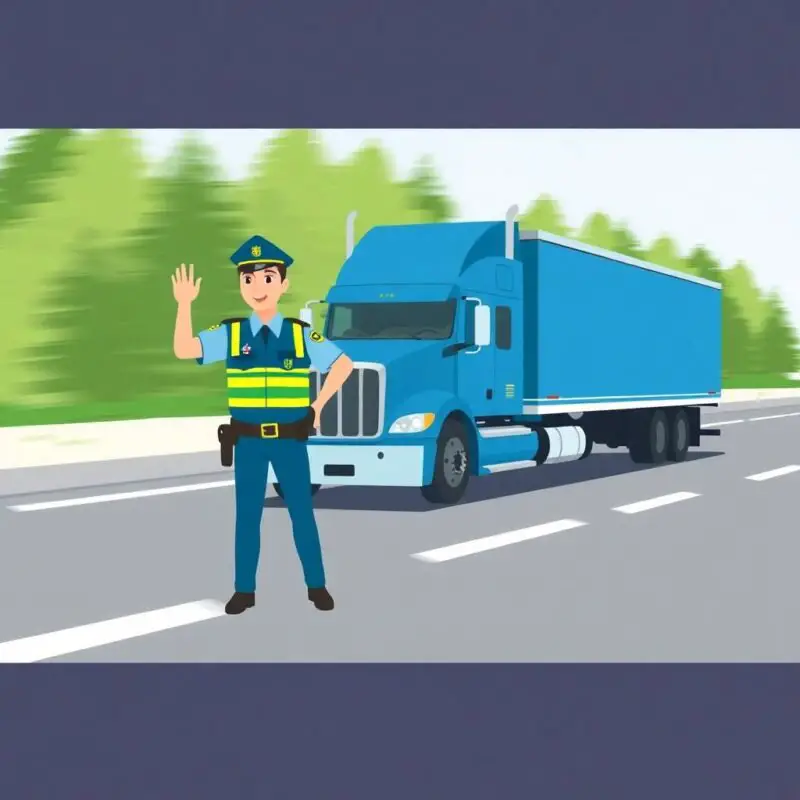1. Reckless Driving: A Fast Track to CDL Disqualification
Reckless driving is more than just a traffic offense—it’s a direct threat to your commercial driving career. Under federal CDL Disqualification Rules, reckless driving is a serious violation that can lead to immediate suspension or permanent loss of your Commercial Driver’s License (CDL). For small fleet operators and owner-operators, understanding and adhering to these rules is crucial to maintaining compliance and ensuring business continuity.
Understanding CDL Disqualification Rules for Reckless Driving
The Federal Motor Carrier Safety Administration (FMCSA) outlines specific CDL Disqualification Rules that address reckless driving. According to these regulations, a first conviction for reckless driving while operating a commercial motor vehicle (CMV) can result in a disqualification period of at least 60 days. Subsequent offenses can lead to longer disqualification periods, and in some cases, a lifetime ban from operating a CMV .Wikipedia+4Instituto de Información Legal+4eCFR+4
Reckless driving encompasses behaviors such as excessive speeding, erratic lane changes, and operating a vehicle with willful disregard for safety. These actions not only endanger public safety but also significantly impact a driver’s professional standing and employability.Wikipedia
The Impact on Small Fleets
For small fleet operators, a driver’s disqualification can have cascading effects. It can lead to operational disruptions, increased insurance premiums, and potential scrutiny during DOT audits. Maintaining compliance with CDL Disqualification Rules is not just about avoiding penalties; it’s about safeguarding your business’s reputation and financial stability.eCFR
Implementing comprehensive driver training programs and regular compliance checks can mitigate risks. Utilizing resources like the DOT Compliance Checklist for Owner-Operators ensures that all safety protocols are in place and adhered to.
Proactive Measures for Compliance
Adhering to CDL Disqualification Rules requires a proactive approach. Regular monitoring of driver behavior, routine safety audits, and staying updated with FMCSA regulations are essential. Services such as Driver Safety Score Management can provide valuable insights into driver performance and help identify areas for improvement.
Additionally, ensuring that all drivers are enrolled in a Drug and Alcohol Testing Program is vital. Substance abuse violations are a significant factor in CDL disqualifications, and maintaining a robust testing program demonstrates a commitment to safety and compliance.
Navigating Audits and Violations
In the event of a violation or audit, having a solid preparation strategy is crucial. Engaging with DOT Audit Preparation Services can help ensure that all documentation is in order and that your fleet is ready for inspection. Addressing issues promptly and effectively can prevent minor infractions from escalating into major compliance problems.
For assistance in correcting violations, the How to Correct FMCSA Violations guide provides step-by-step instructions to help you navigate the process and restore compliance.
Staying Informed and Prepared
Staying informed about changes in CDL Disqualification Rules and other regulatory updates is essential. Regularly visiting authoritative sources like the FMCSA and Transportation.gov can provide the latest information and guidance.
For personalized assistance and to ensure your fleet remains compliant, consider scheduling an appointment with a compliance specialist through this link.
For more insights and resources on maintaining compliance, visit Truckers Compliance Hub.
Please note that this article is for informational purposes only. For more details, refer to our Disclaimer and Terms of Service.

2. DUI Convictions: Zero Tolerance in Commercial Driving
In the world of commercial transportation, there is no room for error when it comes to impaired driving. Under strict CDL Disqualification Rules, a DUI (Driving Under the Influence) conviction is one of the fastest ways to lose your commercial driving privileges. With federal agencies like the FMCSA and Department of Transportation enforcing a zero-tolerance policy, even a first offense can result in devastating consequences for your career.
CDL Disqualification Rules and DUI Offenses
The CDL Disqualification Rules mandate a one-year disqualification for drivers convicted of operating a commercial motor vehicle (CMV) with a blood alcohol concentration (BAC) of 0.04% or higher. If the vehicle was transporting hazardous materials, the disqualification period increases to three years. A second DUI offense can result in a lifetime ban from holding a CDL.
To help carriers navigate these regulations, our FMCSA Compliance Requirements for Trucking Companies guide outlines how to maintain operational integrity and compliance.
Why Zero Tolerance Is Critical
Unlike non-commercial drivers, CDL holders are held to a much stricter standard due to the risks associated with operating large vehicles. DUI convictions are not only personal legal issues—they are safety concerns that jeopardize lives and property. The FMCSA’s Clearinghouse Compliance database helps track these offenses to ensure that disqualified drivers cannot operate CMVs.
Maintaining accurate Driver Qualification Files is part of effective compliance, and any DUI conviction must be reported and handled according to federal mandates.
Compliance Starts with Prevention
Preventing DUI-related disqualifications begins with proactive management. Implementing a robust Drug and Alcohol Testing Program is critical. Our Drug and Alcohol Testing Management services provide comprehensive solutions for carriers and owner-operators, ensuring drivers remain compliant with CDL Disqualification Rules.
In addition to pre-employment screening outlined in the Pre-Employment DOT Drug Testing Requirements, employers must also conduct Random DOT Drug Testing to stay compliant and minimize risks.
The Cost of Non-Compliance
Failing to comply with CDL Disqualification Rules not only removes drivers from the road but also exposes carriers to legal and financial penalties. Audits can uncover overlooked violations, so it’s vital to stay prepared. Our DOT Audit Preparation services and Compliance Checklist for Owner-Operators help fleets pass audits without issue.
If a violation has already occurred, use our How to Correct FMCSA Violations resource to guide your recovery process.
Support for Trucking Professionals
At Truckers Compliance Hub, we offer tools like Driver Safety Score Management and CSA Intervention Thresholds to help businesses improve safety scores and avoid disqualification risks.
For new entrants, our New Entrant Safety Audit Survival Tips provide key insights on staying compliant from day one. We also support filing needs through our IFTA, IRP & BOC-3 Support and UCR Filing Deadlines assistance services.
Ready to protect your career and your fleet from unnecessary risks? Schedule an appointment today to speak with a compliance expert.
For more in-depth guidance, see our FMCSA Compliance Help for Trucking Companies and our Services for Owner Operators.
This article is intended for educational purposes only. For legal terms and responsibilities, please review our Disclaimer and Terms of Service.
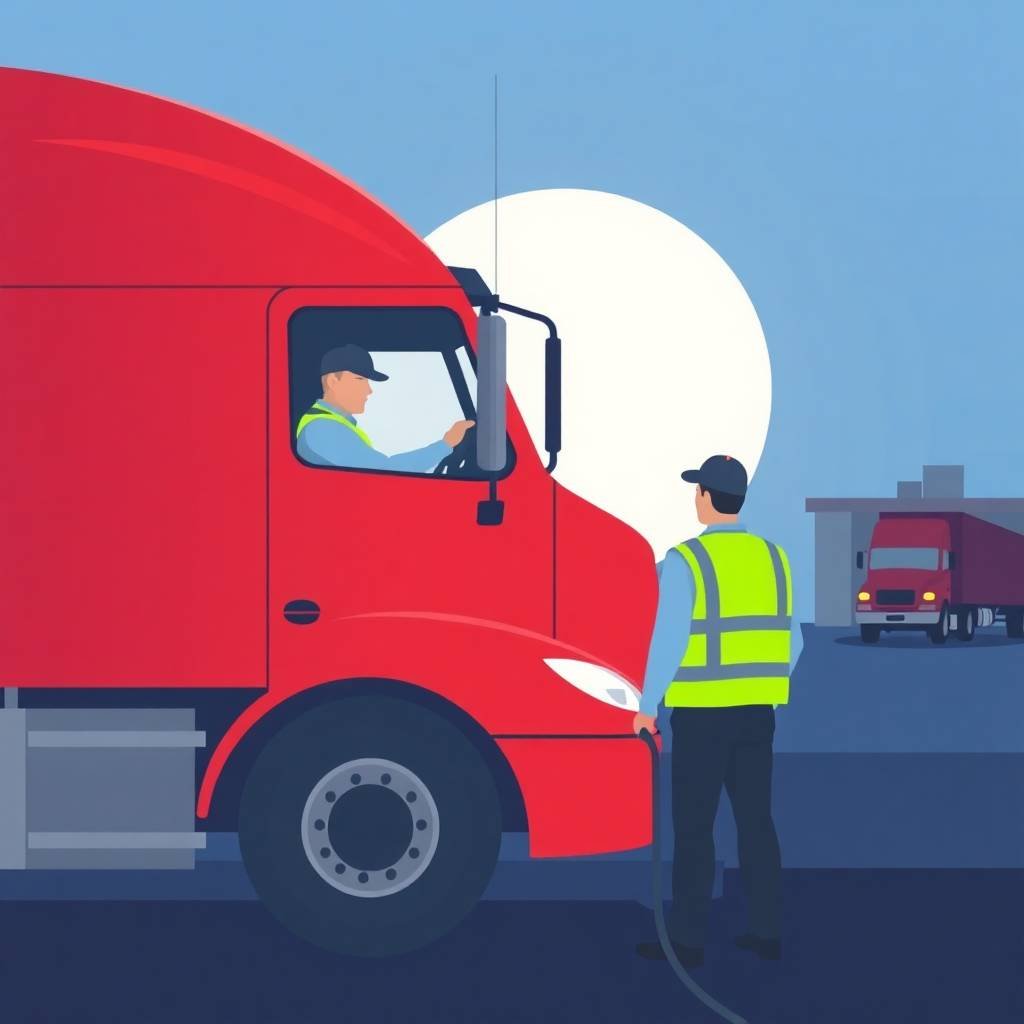
3. Leaving the Scene: Why Hit-and-Run Equals Career Suicide
In the trucking industry, your Commercial Driver’s License (CDL) is your career. One serious misstep—such as leaving the scene of an accident—can instantly bring that career to an end. According to CDL Disqualification Rules, a hit-and-run is considered a major offense that often results in immediate and lengthy disqualification. For drivers, understanding the full implications of this violation is critical.
CDL Disqualification Rules and Hit-and-Run Violations
Under the Federal Motor Carrier Safety Administration (FMCSA), CDL Disqualification Rules are crystal clear: leaving the scene of an accident while operating a commercial vehicle leads to a minimum one-year disqualification for a first offense. If the incident involves a fatality, or if it occurs while transporting hazardous materials, the penalties are even harsher.
The U.S. Department of Transportation backs these rules to ensure public safety and professional accountability. Violations are reported to systems like the FMCSA Clearinghouse, making them visible to future employers and enforcement agencies.
Why This Mistake is Career-Ending
A hit-and-run doesn’t just trigger CDL Disqualification Rules; it brands a driver as unreliable and dangerous. Insurance rates skyrocket, job prospects vanish, and reputation within the industry is permanently damaged.
To avoid such career-ending errors, drivers must understand what’s expected in every situation. Tools like our DOT Compliance Checklist and DQ File Violations Guide can help carriers and drivers stay compliant and informed.
Maintaining Compliance to Prevent Career Suicide
Proactive compliance is the only path forward. At Truckers Compliance Hub, we provide essential resources like the Driver Qualification File Requirements and the FMCSA Compliance Requirements for Trucking Companies, which ensure your team knows the risks and how to avoid them.
Our DOT Audit Preparation services and CSA Intervention Thresholds support carriers in staying audit-ready and safe from violations.
Substance Abuse, Safety Scores, and More
Many hit-and-run incidents are linked to impairment. That’s why our Drug and Alcohol Testing Management services are crucial. We offer help with Pre-Employment DOT Drug Testing Requirements, Random Testing, and Driver Drug and Alcohol Testing Programs to ensure full compliance with CDL Disqualification Rules.
We also help manage your Driver Safety Score, which can determine your ability to remain employable within the trucking industry.
Your Next Step: Professional Compliance Support
Leaving the scene of an accident is more than just a legal issue—it’s a breach of public trust and a guaranteed trigger for CDL Disqualification Rules. If you’re unsure where you stand, schedule a one-on-one compliance appointment to get expert support today.
Whether you’re a new entrant or a seasoned carrier, our services—like New Entrant Safety Audit Survival Tips, IFTA/IRP/BOC-3 Support, and How to Correct FMCSA Violations—can help protect your license and your livelihood.
Explore our FMCSA Compliance Help for Trucking Companies and Owner-Operator Services to maintain your edge in a regulated environment.
To stay informed, view our latest blog posts for timely updates and essential insights.
This article is for informational purposes only. For legal guidelines and user responsibilities, please review our Disclaimer and Terms of Service.
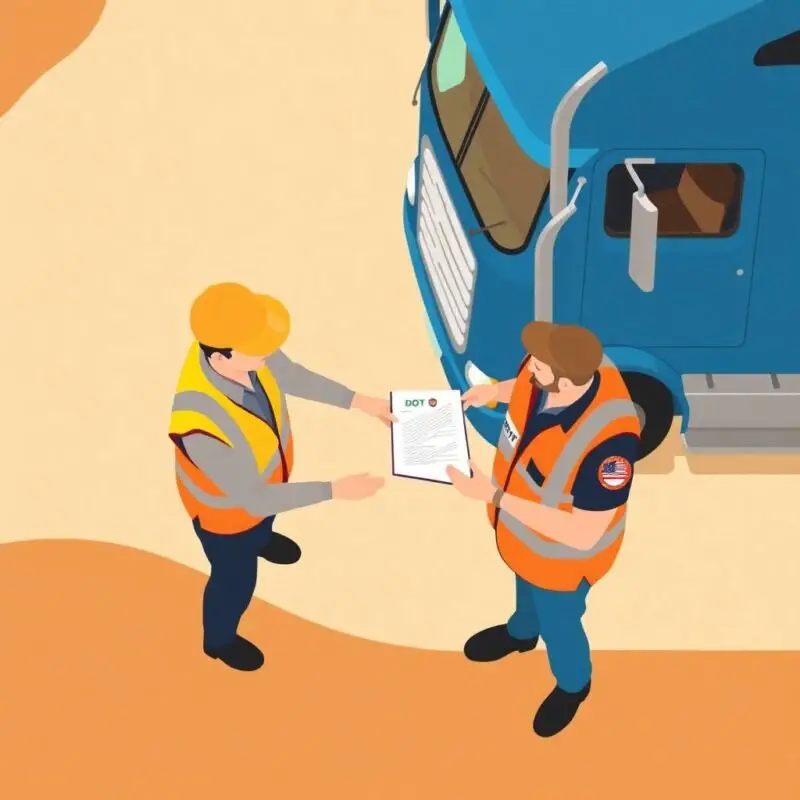
4. Using a Commercial Vehicle to Commit a Felony
Using a commercial motor vehicle (CMV) to commit a felony is one of the most serious violations under CDL Disqualification Rules, and it carries swift and permanent consequences. The Federal Motor Carrier Safety Administration (FMCSA) mandates immediate disqualification of a commercial driver’s license if the driver is convicted of using a CMV in the commission of a felony. This offense not only damages careers but also jeopardizes public trust and company safety ratings.
CDL Disqualification Rules and Felony Convictions
Under FMCSA regulations, committing a felony with a commercial vehicle results in a lifetime disqualification in most cases. Examples include drug trafficking, human smuggling, or using the vehicle in the commission of a violent crime. According to the U.S. Department of Transportation, this type of behavior threatens public safety and violates the integrity of the transportation system.
For trucking companies and drivers, understanding the nuances of CDL Disqualification Rules is essential. Visit Truckers Compliance Hub to stay updated with posts that break down these rules in easy-to-understand terms.
Legal and Career Consequences
Felony use of a CMV affects more than just the individual driver—it puts carriers at risk for audits, penalties, and revoked operating authority. Violations will appear in systems like the FMCSA Clearinghouse, impacting hiring and insurance eligibility.
Trucking companies must avoid these risks by strictly adhering to the Driver Qualification File Requirements and using tools like our DOT Compliance Checklist and DQ File Violations Overview.
Preventing Disqualifying Offenses
The best way to prevent felony-related CDL disqualifications is proactive compliance. Regular Drug and Alcohol Testing—including Pre-Employment and Random DOT Testing—ensures your drivers meet all safety and legal standards. These programs are critical under CDL Disqualification Rules and should be part of every carrier’s risk management strategy.
In addition, maintaining compliance with FMCSA Safety Measurement System SMS 2025 scores and Driver Safety Score Management helps companies identify red flags early.
Professional Support for Compliance
For help avoiding felony-related disqualification, consider scheduling a compliance consultation. Our experts offer step-by-step guidance on everything from DOT Audit Preparation to How to Correct FMCSA Violations. We also support CSA Intervention Thresholds and New Entrant Safety Audits.
Other essential services include IFTA/IRP/BOC-3 Support, UCR Filing Deadlines, and our specialized DOT Compliance Checklist for Owner Operators.
More Resources to Stay Compliant
Visit our comprehensive pages on FMCSA Compliance Services for Owner-Operators and our guide on FMCSA Compliance Help for Trucking Companies for even more insight.
Every resource is designed to help you navigate CDL Disqualification Rules and protect your business from irreversible damage.
This article is provided for informational purposes. For legal notices and user responsibilities, please review our Disclaimer and Terms of Service.
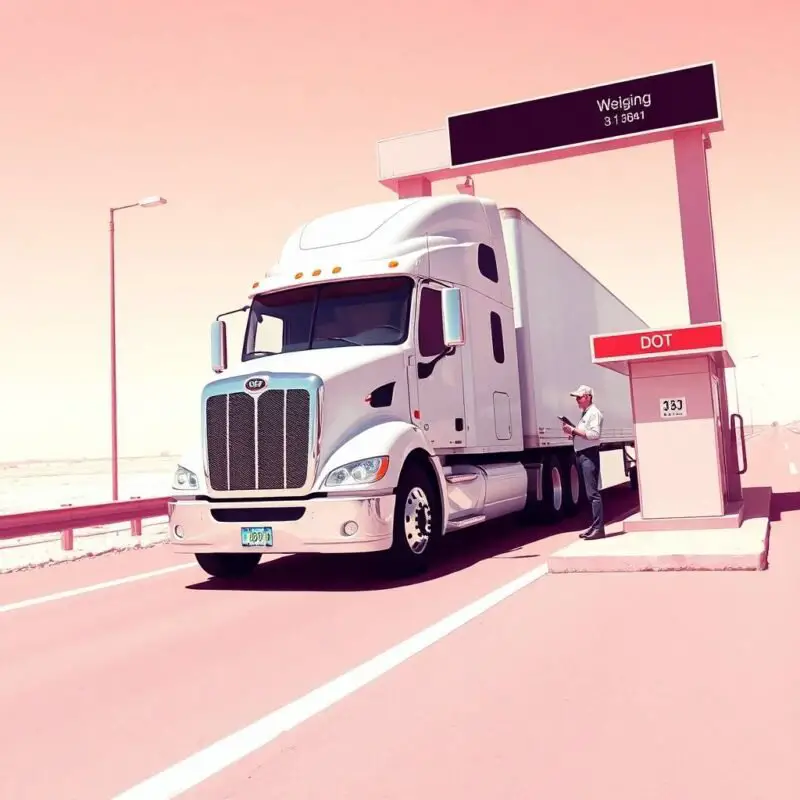
5. CDL Disqualification Rules and the Impact of Driving Suspensions
Commercial drivers hold a critical responsibility on the road, and the CDL Disqualification Rules are designed to ensure safety and accountability within the transportation industry. Among the various infractions that can lead to disqualification, driving suspensions are among the most impactful. Whether due to alcohol violations, point accumulation, or state-imposed penalties, a suspension can drastically alter a commercial driver’s future and a motor carrier’s compliance standing.
Understanding CDL Disqualification Rules
The Federal Motor Carrier Safety Administration (FMCSA) outlines strict CDL Disqualification Rules to govern who may operate a commercial motor vehicle. These rules are enforced nationwide and reflect the FMCSA’s commitment to reducing crashes, injuries, and fatalities involving large trucks and buses. For example, even a temporary suspension of a CDL can result in a disqualification ranging from 60 days to life, depending on the offense.
Commercial drivers should be familiar with driver qualification file requirements and the DOT compliance checklist to help avoid disqualifying events. Failing to monitor or respond to these risks can lead to costly violations for both the driver and the carrier.
Why Suspensions Lead to Disqualification
CDL suspensions—often stemming from DUI offenses, hit-and-runs, or excessive traffic violations—can trigger automatic penalties under CDL Disqualification Rules. These suspensions are reportable in the FMCSA Clearinghouse and can significantly damage a driver’s employment prospects and a carrier’s safety rating in the FMCSA Safety Measurement System.
Companies must take a proactive approach by implementing strong drug and alcohol testing compliance programs and regularly checking compliance metrics. Avoiding common FMCSA compliance mistakes is essential to protecting the business.
Protecting Your CDL and Your Career
Drivers and companies alike must stay informed on CDL Disqualification Rules to ensure continued eligibility. From pre-employment DOT drug testing to random testing programs, ongoing monitoring is necessary. Effective driver drug and alcohol testing management supports long-term compliance.
If you’re facing a possible suspension, early action is vital. Consider scheduling a compliance consultation to discuss how to correct your course and avoid permanent disqualification.
Compliance Tools and Resources
To help carriers stay in good standing, Truckers Compliance Hub offers an array of tools, including services for DOT audit preparation, CSA intervention threshold guidance, and driver safety score management. If you’ve already experienced a violation, use our guide on how to correct FMCSA violations.
Our support also includes IFTA, IRP, and BOC-3 filings, UCR filing deadlines, and new entrant safety audit survival tips. For independent drivers, our DOT compliance checklist for owner-operators is a must-read.
Visit our comprehensive guides on FMCSA compliance services for trucking companies and owner-operators to learn more.
For full legal notices and user responsibilities, review our Disclaimer and Terms of Service.
Stay informed. Stay compliant. Stay on the road.

6. Serious Traffic Violations: How Repeated Offenses Add Up
Commercial drivers operate under stricter standards than the average motorist, and one area where this is particularly evident is in the treatment of serious traffic violations. Under federal CDL Disqualification Rules, repeated offenses don’t just tarnish a record—they can quickly result in suspension or permanent disqualification of a commercial driver’s license. Understanding how these rules work is essential for drivers and fleet managers striving to stay compliant and protect their careers.
What Qualifies as a Serious Traffic Violation?
According to the FMCSA and the U.S. Department of Transportation, serious traffic violations include speeding excessively (15+ mph over the limit), reckless driving, improper lane changes, and following too closely. These offenses are tracked under federal CDL Disqualification Rules, and even if they occur while driving a personal vehicle, they can still lead to CDL consequences.
Having two serious traffic violations within a three-year period can lead to a 60-day disqualification. A third offense may trigger a 120-day ban. Repeated offenses escalate quickly, particularly when combined with other issues such as DQ file violations or FMCSA compliance mistakes.
How Repeated Offenses Add Up
CDL Disqualification Rules are designed to identify patterns of unsafe behavior. While a single ticket may not immediately result in disqualification, two or more infractions—especially within a short timeframe—can trigger harsh penalties. These rules exist to safeguard public roadways and uphold standards set by the FMCSA Safety Measurement System (SMS).
To avoid this spiral, companies should have strong internal controls, including regular driver safety score management, updated driver qualification files, and adherence to drug and alcohol testing compliance. Random and pre-employment drug testing should be part of your company’s drug testing program.
Staying Ahead of Disqualification Risks
Fleet managers and independent operators must stay up to date with compliance protocols. Resources like the DOT compliance checklist and new entrant safety audit tips offer essential guidance. Regular audit preparation and correcting FMCSA violations can make the difference between business continuity and operational disruption.
If you’re unsure where you stand or how to improve, schedule an appointment to review your compliance and risk profile. You can also explore our full range of services, including CSA intervention thresholds, UCR filing deadlines, IFTA/IRP/BOC-3 support, and drug and alcohol testing management.
The Compliance Hub Advantage
At Truckers Compliance Hub, we help carriers and drivers remain compliant with federal and state regulations. Whether you’re an owner-operator or manage a fleet, our services cater to compliance needs for trucking companies and owner-operators. You’ll find tailored tools like our owner-operator checklist and advanced support for managing FMCSA requirements.
Visit our latest posts for updates on industry standards, FMCSA Clearinghouse compliance, and essential news that impacts your daily operations.
Be sure to review our Disclaimer and Terms of Service to understand your responsibilities and our content guidelines.
Repeated violations are more than just marks on a driving record—they’re signals that disqualification may be near. Know the CDL Disqualification Rules, follow compliance best practices, and take steps today to protect your license and your livelihood.
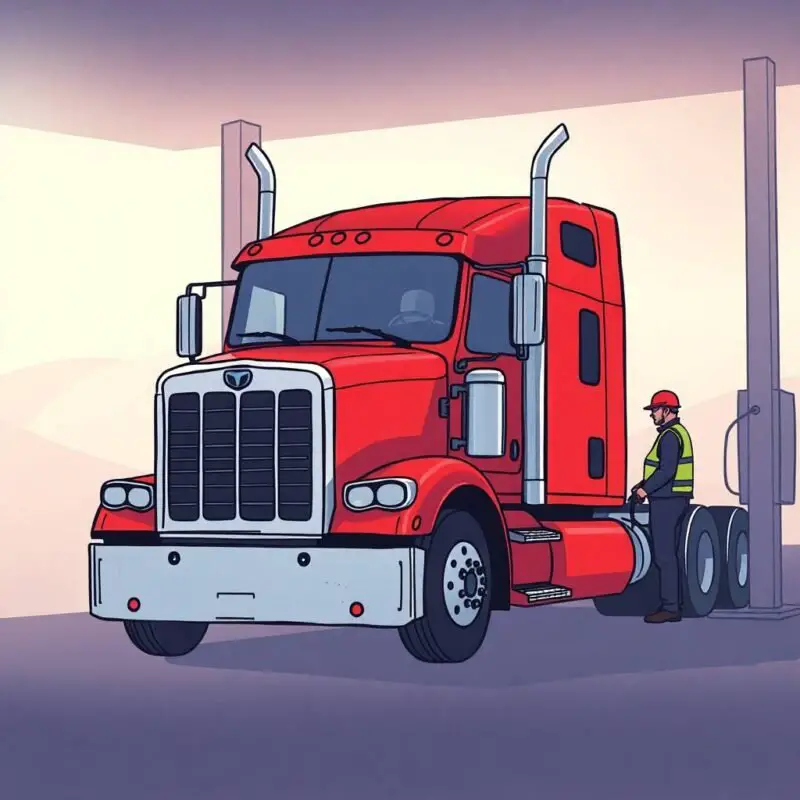
7. Railroad Crossing Violations: A Lesser-Known Yet Fatal Error
While many truck drivers are aware of the major offenses that can lead to license suspension, few recognize how dangerous and consequential railroad crossing violations can be. These infractions may seem minor at first glance, but under CDL Disqualification Rules, failing to comply with railroad crossing laws can result in severe penalties, including license disqualification and even termination of employment. Understanding the significance of these violations is essential to maintaining compliance and protecting lives.
The Hidden Dangers of Railroad Crossing Violations
Every year, collisions at railroad crossings claim lives and cause substantial property damage. For commercial drivers, federal regulations mandate strict protocols when approaching these crossings. Violations—such as failing to slow down, stopping improperly, or ignoring warning signals—can trigger disqualification under CDL Disqualification Rules. These rules are enforced by the Federal Motor Carrier Safety Administration (FMCSA) and the U.S. Department of Transportation.
For drivers, just one railroad crossing violation can result in a 60-day disqualification. A second offense within three years can lead to a 120-day suspension. A third can result in a one-year disqualification. These infractions weigh heavily on a driver’s safety score and compliance history.
How CDL Disqualification Rules Apply
Under CDL Disqualification Rules, any failure to follow required procedures at a railroad crossing is considered a serious offense. These include:
- Not slowing down or checking tracks when the crossing is not equipped with signals.
- Not stopping when signals are flashing.
- Failing to leave enough clearance to cross fully.
- Ignoring a law enforcement officer’s instructions.
When violations like these are compounded by other compliance failures, such as DQ file violations or poor driver qualification file management, the consequences multiply.
Avoiding Disqualification Through Proactive Compliance
Maintaining compliance with CDL Disqualification Rules requires constant vigilance and knowledge of FMCSA requirements. Tools like the DOT compliance checklist and new entrant safety audit survival tips help carriers and drivers prepare and stay proactive. If you’re unsure whether your team is compliant, consider using audit preparation services or schedule a consultation for a risk assessment.
Other key compliance measures include adhering to drug and alcohol testing regulations, maintaining Clearinghouse compliance, and avoiding common FMCSA mistakes. Drivers and fleet managers can also utilize DOT compliance resources and our FMCSA compliance help for trucking companies to reduce risk.
Protecting Your License and Your Livelihood
At Truckers Compliance Hub, we understand how overlooked violations—like those at railroad crossings—can end careers and compromise safety. We offer support for correcting FMCSA violations, managing CSA thresholds, and staying up to date on UCR filing deadlines.
We also provide tailored support for owner-operators and compliance services, including drug testing management and BOC-3/IFTA/IRP support.
Staying compliant with CDL Disqualification Rules is not just about avoiding fines—it’s about saving lives and ensuring long-term operational success. For more insights, check out our latest posts and explore critical guidance such as the FMCSA Safety Measurement System (SMS) 2025 update.
Please review our Disclaimer and Terms of Service for more details on how we operate.

What are the most common violations under CDL Disqualification Rules that drivers should avoid?

The most common violations include DUI, reckless driving, leaving the scene of an accident, using a CMV to commit a felony, and repeated serious traffic offenses. These infractions are all outlined in the CDL Disqualification Rules and can result in temporary or permanent loss of your license. To stay proactive, ensure your records and compliance files are accurate and up to date—our DQ File Setup and Monitoring service helps keep your documentation audit-ready at all times.
How does a DUI impact my CDL under current CDL Disqualification Rules?

A DUI—whether in a commercial or personal vehicle—can lead to an automatic disqualification under CDL Disqualification Rules, even for a first offense. The FMCSA enforces a zero-tolerance policy for controlled substances. To remain compliant and protect your CDL, consider our Drug and Alcohol Testing Management service, which ensures you meet federal testing standards and maintain a clean safety profile.
Can improper recordkeeping lead to violations under CDL Disqualification Rules?

Yes, improper or missing records—especially those tied to drug testing, driver qualifications, or vehicle inspections—can indirectly result in violations under CDL Disqualification Rules. Poor documentation may trigger audits or higher CSA scores. To prevent this, we recommend scheduling a compliance review or using our DOT Audit Preparation service to ensure your records meet all FMCSA expectations.
Do CDL Disqualification Rules apply to out-of-service order violations?

Absolutely. Operating a CMV while under an out-of-service order is a direct violation of CDL Disqualification Rules and can lead to immediate suspension. These violations often stem from missed registration filings or expired permits. Stay compliant with support services like UCR Filing Assistance and IFTA/IRP/BOC-3 Support to ensure you never fall behind on your required filings.
How can small fleet owners stay ahead of CDL Disqualification Rules to protect their drivers?

Small fleet owners must actively monitor driver behavior, maintain detailed compliance files, and stay informed about FMCSA updates to avoid violations under CDL Disqualification Rules. Investing in tools like Drug and Alcohol Testing Management and DQ File Setup and Monitoring can dramatically reduce risk and help ensure long-term driver eligibility.
Igor Iturriaga is a transportation compliance expert and founder of Dynamic 305 Miami LLC. He helps owner-operators and fleets stay FMCSA-compliant and audit-ready. https://www.linkedin.com/in/igor-iturriaga-64503217/
